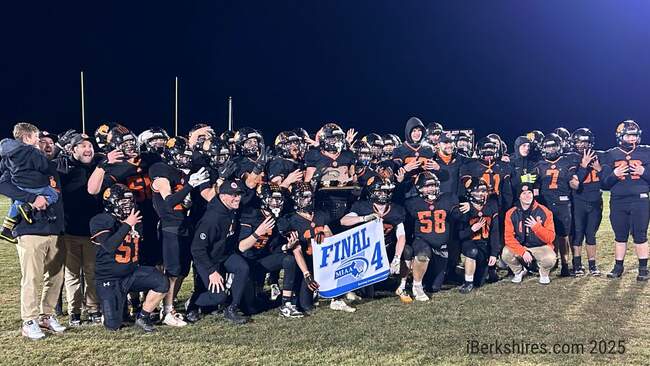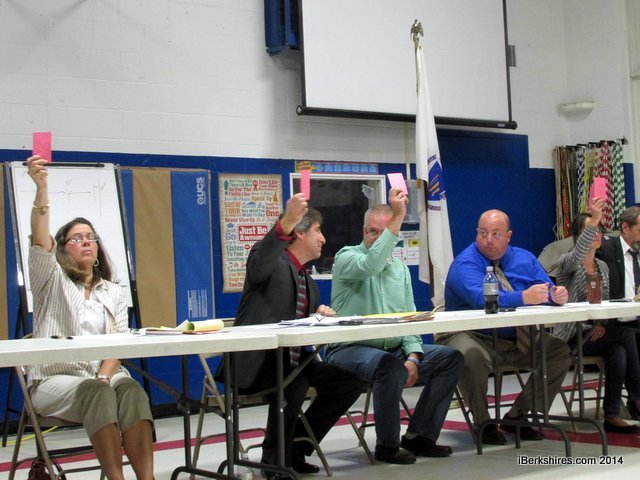
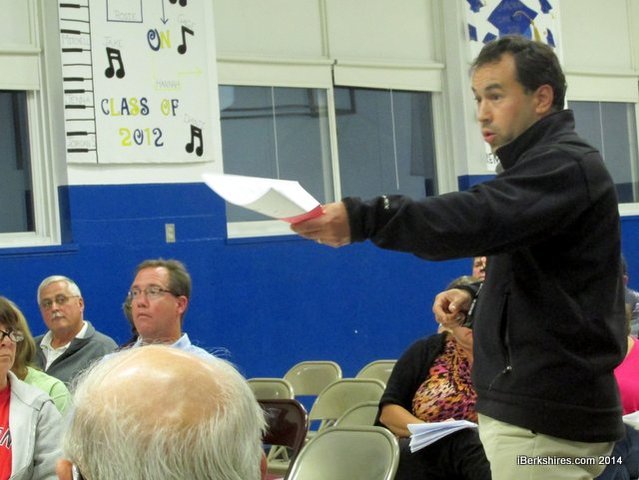
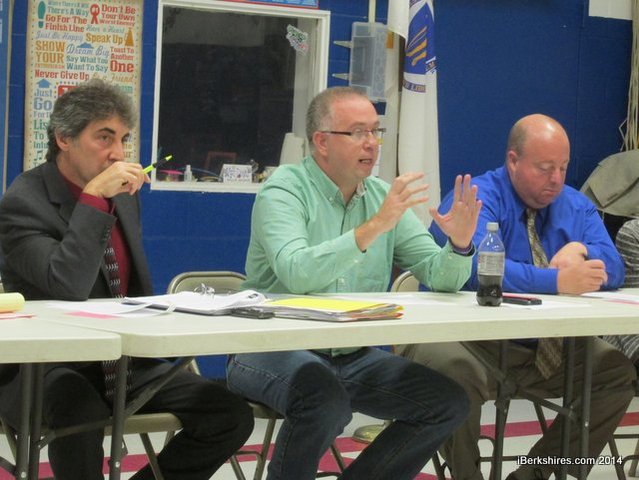

Clarksburg Voters OK Building Inspector, Reject Bylaw
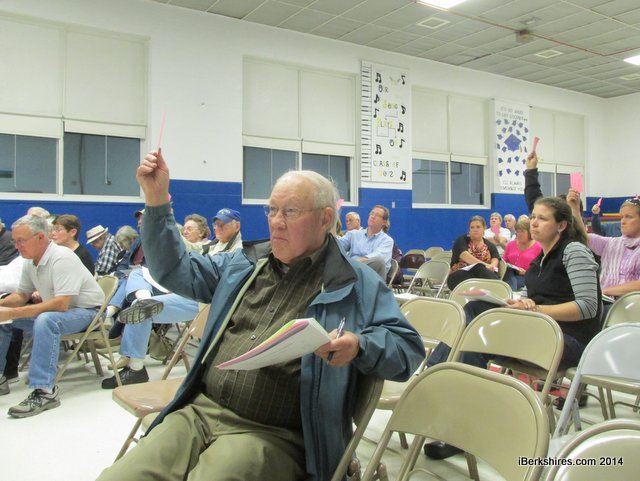 Clarksburg voters approved combining posts for building inspector but rejected a farm animal bylaw. Clarksburg voters approved combining posts for building inspector but rejected a farm animal bylaw. |
CLARKSBURG, Mass. — Voters rejected a bylaw on Wednesday that would have restricted the housing of large farm animals.
And out of the 15-article special town meeting warrant, the only thing that passed were a group of questions creating a paid building inspector post.
Seven questions related to spending had to be tabled or withdrawn when town officials learned Wednesday that they could not access the funds.
"We'll have a window in November, early December in order to use the funds," said Town Administrator Carl McKinney, anticipating another special town meeting prior to setting the tax rate. "We will not be able to use any funds to pay the bills."
Officials had expected to tap into the Sewer Enterprise Fund for nearly $18,000 to reimburse the town for already completed work on the sewer line that runs by the East Road bridge and another $14,589.72 to offset salaries related to sewer line maintenance and administration.
The fund has more than $80,000 but because it was past the July 1 fiscal year, the Department of Revenue said it could not be used until the town's accounts and free cash was certified.
Also tabled were a handful of past bills that also could not be paid.
"Those four articles cannot come from the certification of free cash," said Finance Committee Chairman Mark Denault. "They will need to be paid by other sources of funding. ... It's because there's no money for these funds to be taken from."
McKinney said the town was about $120 below the levy limit. Voting to raise and appropriate anymore would trigger a Proposition 2 1/2 override.
The town's auditors, Scanlon & Associates, was working with the finance team to ensure the Schedule A for certification and other documentation was submitted in a timely manner, said McKinney.
Should the certification not completed in time, and should voters defeat the use of Sewer Enterprise Funds for salaries, the employees affected would have to take a 6.4 percent cut in pay, likely through the use of furloughs.
The longest debate was over a bylaw introduced to restrict housing a large farm animal to a minimum of 2 acres, with another .6 acres for each other animal.
The bylaw would also have limited the animals' proximity to the wells of neighboring properties as a matter of public health.
It had resulted from complaints by Walker Street residents when a neighbor had two horses in his garage in the dense residential area.
Christopher Caproni was one of those who brought the matter to the board nearly three years ago and advocated for the bylaw to pass.
A number of other residents, however, felt it was overregulation and questioned how the well restrictions would be enforced.
"It's also to make sure the animals are appropriately fed, sheltered and have adequate space to exist," said McKinney.
"I'm opposed to putting any more conditions on my land," said Michael Milazzo. "I don't want anymore restrictions on my land than we already have."
Several questioned why the animal control officer couldn't deal with animal housing problems. Police Chief Michael Williams said she can't enforce anything without a bylaw.
The state has very minimal rules and expects municipalities set their own bylaws, he said.
"People have the right to raise animals for food or pleasure," said David Thayer. "There's too many laws already."
He motioned and Milazzo seconded to vote to reject the bylaw, which passed. Caproni then motioned to eliminate all references to wells and water to remove the objections of a number of residents.
McKinney said that would not pass muster with the attorney general because removing the public safety aspect made it a zoning issue, which would have to go through a public process.
After some debate, Caproni withdrew his motion and the Board of Selectmen agreed to appoint an ad hoc committee to research the issue and present a new bylaw at a next town meeting.
Voters fairly swiftly approved a series of questions that combined the building inspector, zoning office and fence viewer and all stipends, set an amended salary of $5,500 and sent fee collections into the general fund.
The town has had difficulty in keeping a certified building inspector and currently has no one in that position.
Tags: domestic animals, enterprise accounts, special town meeting,

